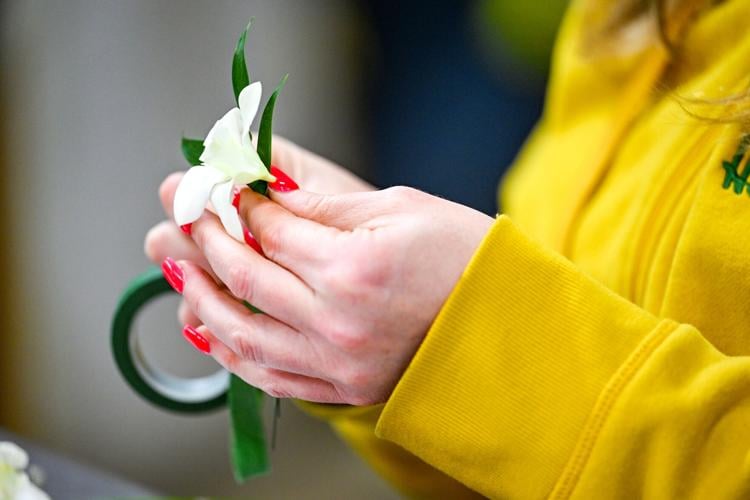After years of complaints about onerous licensing requirements for florists, hair braiders and others, the Louisiana Legislature is considering bills this year to ease the road to those professions.
Though lawmakers have long tried to reform occupational licensing, past attempts to reduce, for example, the 500 hours of training that Louisiana hair braiders must undergo before they receive a license, have been stymied by opponents who say the training is needed.
Supporters are hoping for a different outcome this year for House Bill 749 and 933. If passed, HB 749 would remove the 500-hour requirement for braiders, while HB 933 would remove a licensing requirement for florists.
The House Committee on Commerce advanced HB 933 to the full House Monday but decided to defer until next week a decision on HB 749.
The bills were filed as part of an effort to remove unnecessary barriers to work across industries, said Rep. Mike Bayham, R-Chalmette. He said one in five workers statewide needs an occupational license to do their jobs.
"There is no health, welfare, fiduciary or safety justification for this license, and we are the only state in the union that requires a license for florists," Bayham said before the committee advanced HB 933 on a 15-3 vote.
Speaking on the florist bill, Anthony Thibodeaux, produce and floor director for Associated Grocers, said the licensing rule "makes no sense at all" and slows business growth.
"A lot of our stores are in rural areas, and sometimes the grocery store is the only place that you can buy flowers in these rural areas," he said.
When debate turned to the braiding bill, Bayham noted Louisiana is one of just 15 states that require a license for braiding and on average, it costs students about $14,000 to obtain a license with most finishing with about $8,000 in debt.
Betsy Sanz, an attorney at the Institute for Justice, which filed a lawsuit against the Louisiana Board of Cosmetology to remove the 500-hour requirement on behalf of Ashley N’Dakpri, a natural hair braider and manager of Afro Touch Hair Braiding in Gretna, called the rule "onerous" and said it violated N'Dakpri's "right under the Louisiana constitution to make a living."
Sanz said despite the cost and time burdens placed on braiders, the schooling does nothing to improve public safety as there is little danger associated with braiding.
"Braiding is safe, it doesn't require chemicals, and through Ashley's lawsuit, we know that the Board (of Cosmetology) has not a single record of any complaint from the public about braiding," Sanz told the commerce committee.
If passed, the bill would replace the licensing rule with a permitting process that does not require hundreds of hours of education. While the bill would allow braiders to work without a license, the state Cosmetology Board would still require licensing for salons that perform other services.
N'Dakpri, who is American but has family from Africa and spent part of her childhood on the Ivory Coast, also told the committee that hair braiding can be a pathway for income for immigrants.
N'Dakpri's lawsuit -- filed in 2019 -- was dismissed in a lower court and Sanz has already filed an appeal. A hearing is scheduled for Wednesday though the court is not expected to make a decision on the validity of the claims.
Past attempts to end or reduce licensing requirements for hair braiders and florists have had minimal success in the Legislature.
Some lawmakers called for the committee to hold off on a vote on the hair braiding bill until litigation has ended, a process that could take years, while others debated whether to simply reduce the training requirement. Still others suggested increasing the requirement from 500 to 600 hours to meet the minimum for students to qualify for federal aid to pay for courses.
Rep. Candace Newell, D-New Orleans, suggested crafting an amendment that would allow for braiders to take a "skills test" that would exempt them from the education requirement but would still require education on sanitary practices.
Given the concerns, Bayham asked for more time to address the questions, and the committee agreed to reconsider the bill next week. Two representatives from the state Board of Cosmetology also spoke in committee but did not take a stance on the bill.
The committee also declined to take up House Bill 930, which would have reduced the number of required training hours for cosmetologists from 1,500 to 1,000.




